Saffron Dreams was declared a finalist in the multicultural category by the 2009 Indie Book Awards. The Indie Book Awards were established to recognize and honor the top independently published books of the year. IBPPG was formed in 2005 to provide support and recognition for the independent book publishing profession.
Kamila Shamsie: Born into a family of writers
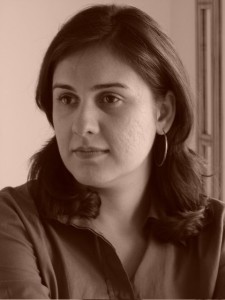 Kamila Shamsie is the author of five novels, including Kartography, Broken Verses and Burnt Shadows, which have publishers in 19 countries. Three of her novels have received awards from the Pakistan Academy of Letters and she has been shortlisted for the Liberaturpreis (Germany), twice for the John Llewellyn Rhys award (U.K). She has written for various publications including The Guardian, Prospect, New Statesman, TLS, The Telegraph (all U.K), DAWN and Newsline (Pakistan), The Daily Star (Bangladesh) and the New York Times (U.S), and is on the editorial board of the Index on Censorship. She has been a judge for the Orange Award for New Writing, the Guardian First Book Award, the Geoffrey Faber Memorial Award and the Australia-Asia Literature Award. She grew up in Karachi, went to university in America and now lives in London. Burnt Shadows is shortlisted for the 2009 Orange Prize for Fiction.
Kamila Shamsie is the author of five novels, including Kartography, Broken Verses and Burnt Shadows, which have publishers in 19 countries. Three of her novels have received awards from the Pakistan Academy of Letters and she has been shortlisted for the Liberaturpreis (Germany), twice for the John Llewellyn Rhys award (U.K). She has written for various publications including The Guardian, Prospect, New Statesman, TLS, The Telegraph (all U.K), DAWN and Newsline (Pakistan), The Daily Star (Bangladesh) and the New York Times (U.S), and is on the editorial board of the Index on Censorship. She has been a judge for the Orange Award for New Writing, the Guardian First Book Award, the Geoffrey Faber Memorial Award and the Australia-Asia Literature Award. She grew up in Karachi, went to university in America and now lives in London. Burnt Shadows is shortlisted for the 2009 Orange Prize for Fiction.
Author Interview
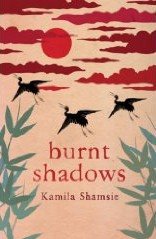 You have been writing for a long time. How would you describe the evolution of your style? What benefit did you get from being around a family of writers? Of all of your works, which one is the dearest to your heart?
You have been writing for a long time. How would you describe the evolution of your style? What benefit did you get from being around a family of writers? Of all of your works, which one is the dearest to your heart?
I’m the last person you should ask about the evolution of my style – aren’t writers notoriously poor at analysing their own work? For me each novel brings its particular set of stylistic demands – with Burnt Shadows’ for instance, because I was going to cover 60 years and 5 countries I knew I needed a more pared down style than in my earlier works.
Being around a family of writers means that I grew up encouraged to read, and surrounded by the notion that books mattered and should be taken seriously. And also, of course, that I had the idea that writing was simply something that people DID….so it never felt unusual that I was writing fiction in my free time all the way through my adolescence. I’ve always found that the novel I’m writing or have just finished is the one dearest to my heart, because that’s the one I feel most engaged with. So right now it’s Burnt Shadows. As soon as I get to work on the next novel, that will change.
What do you make of the rising interest in Pakistani writing in English today?
I’m primarily interested in the writing itself, rather than the interest in it – and I think the work is wonderful. Nadeem Aslam, Uzma Aslam Khan, Aamer Hussein, Mohammad Hanif, Mohsin Hamid and Daniyal Mueenuddin : that’s an extraordinary group of writers. So it is a very exciting moment for Pakistani writing in English. But the interest in it is unfortunately tied up in the world’s terror about what’s going on in Pakistan politically – and, of course, I wish that we didn’t have that situation.
Being on the shortlist for the Orange Fiction Prize is a great honor. How would you rate the competition?
I haven’t yet read the other books on the shortlist – but to think of someone like Marilynne Robinson as ‘competition’ is ludicrous. Her first novel Housekeeping is one of the finest novels of the 20th century. So I’m just enjoying the fact that I get to be in her company on this list.
Describe a day in the life of Kamila Shamsie. What is next for you?
Well, it depends on whether I’m writing or not. When I’m writing a typical day is – wake up, read the newspaper while have a morning cup of tea/coffee, then sit at my desk and start writing. Afternoons my brain shuts off so I might meet a friend for lunch, or go to the gym or read or waste time surfing the web…in the evenings, on a good day, I’ll do another 2-3 hours of work. And then I’ll often go out in the evenings with friends, though some days I just stay in, watch tv, read some more….and so the day goes.
The last few months I’ve been caught up in doing publicity for the book – it started in Pakistan in February, and I’ve just finished a US/Canada tour and have a two month break before going to Ireland and Australia in August, followed by Germany in September and so on…. so there’s no proper routine these days.
What advice do you have for aspiring authors, especially Pakistani writers?
Write.
That sounds facetious, I know, but it’s amazing to me how many people say they’ll write a novel ‘one day,’ or who get caught up in wanting to know about agents and publishers before they’ve written a book. Anyone who is serious about writing needs to make time to write – now, not in some abstract future. And just concentrate on writing the best book you can before worrying about how to get it published, or how it’ll be reviewed etc.
Links
Read an excerpt of Burnt Shadows
Buy Burnt Shadows
About the author
Muneeza Shamsie: An inspiring mother
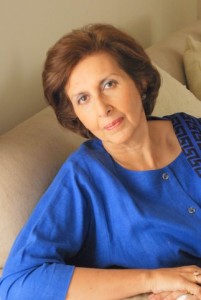 Muneeza Shamsie is a Pakistani critic, bibliographer, short story writer and the editor of three pioneering anthologies A Dragonfly In the Sun: An Anthology of Pakistani Writing in English (Oxford University Press, Karachi 1997) a retrospective of poetry, fiction and drama, Leaving Home: Towards A New Millenium: A Collection of English Prose by Pakistani Writers (Oxford University Press, Karachi, 2001) about migration; And The World Changed: Contemporary Stories by Pakistani Women (Women Unlimited, New Delhi 2005; Feminist Press, New York 2008). She was educated in England, has lived in Karachi and given much thought to issues of colonialism, culture, language and gender which she has addressed through her writing. She has spoken at many literary forums in Pakistan, Britain and India and written essays on literature for many publications such as The Oxford Companion of Pakistan History edited by Ayesha Jalal (forthcoming) the online Blackwell Encyclopedia of Twentieth Century World Fiction edited by John Ball (forthcoming). Interpreting Homes in South Asian Literature edited by Malashri Lal and Sukrita Paul Kumar (2007) The Encyclopedia of Pakistan edited by Hafeez Malik (2006) and South Asian Century edited by Zubeida Mustafa (2001) among others. She contributes to Dawn, Newsline, The Journal of Commonwealth Literature and the online Literary Encyclopedia. From 1973-82, she taught, as a volunteer, music and mime at a special education school run by ACELP and is a founder member of the Karachi hospital, The Kidney Centre.
Muneeza Shamsie is a Pakistani critic, bibliographer, short story writer and the editor of three pioneering anthologies A Dragonfly In the Sun: An Anthology of Pakistani Writing in English (Oxford University Press, Karachi 1997) a retrospective of poetry, fiction and drama, Leaving Home: Towards A New Millenium: A Collection of English Prose by Pakistani Writers (Oxford University Press, Karachi, 2001) about migration; And The World Changed: Contemporary Stories by Pakistani Women (Women Unlimited, New Delhi 2005; Feminist Press, New York 2008). She was educated in England, has lived in Karachi and given much thought to issues of colonialism, culture, language and gender which she has addressed through her writing. She has spoken at many literary forums in Pakistan, Britain and India and written essays on literature for many publications such as The Oxford Companion of Pakistan History edited by Ayesha Jalal (forthcoming) the online Blackwell Encyclopedia of Twentieth Century World Fiction edited by John Ball (forthcoming). Interpreting Homes in South Asian Literature edited by Malashri Lal and Sukrita Paul Kumar (2007) The Encyclopedia of Pakistan edited by Hafeez Malik (2006) and South Asian Century edited by Zubeida Mustafa (2001) among others. She contributes to Dawn, Newsline, The Journal of Commonwealth Literature and the online Literary Encyclopedia. From 1973-82, she taught, as a volunteer, music and mime at a special education school run by ACELP and is a founder member of the Karachi hospital, The Kidney Centre.
Author Interview
As a literary critic and writer, your focus has always been on Pakistani writers and Pakistani writing in English. What do you attribute to the rising interest of such literature in the West? Do you think that it is a phase that will eventually lose its spark?
I think the reason for the rising interest in Pakistani English fiction today is perfectly straightforward: that it has become increasingly accomplished and Pakistani English writers today are really good. This was not so in the earlier decades of Pakistan and, with the exception Ahmed Ali whose major novel was pre-Partition, it was really Zulfikar Ghose and Bapsi Sidhwa who changed that. This coincided with new literary discourse in western academia and the realization that some of the finest English Literature was coming from migrant communities in the west and Britain’s erstwhile colonies.
There is a great international awareness of Pakistan today because of political events and that too has generated an interest in writing from this country, but I don’t believe this would be of much worth, if it was not met by real talent. There are wonderful Pakistani English writers emerging daily – and many more waiting in the wings. To some extent it is a snowball effect. The success of fellow-compatriats encourages others in Pakistan. These established writers are invited to school and colleges in Pakistan; some have conducted creative writing workshops too.
Tell us about your experience as a writer, critic and journalist? How did you choose that path? What was your proudest moment?
My sister and I had a rather unusual upbringing for Pakistani girls because we were sent away to boarding school in England when we were very young – as my father and his brothers had been – when I was nine, my sister was eight. I came back home to Pakistan at nineteen.
I had always loved reading and writing, but it was merely something that people in my family just did. I never thought of it as a career. I had wanted to be a scientist, but I discovered there were no openings for women scientists in Pakistan. So there followed a long period of confusion and cultural conflict.
I was married at 24, of my own choice. I was encouraged to write by my husband, Saleem and my two best friends, although I kept it a secret from everyone else: it was years before I mustered up the courage to offer anything for publication. The next thing I knew, I was asked by Dawn to contribute features to its newly vamped Sunday Magazine. This was in 1982.
I loved journalism. I loved the new horizons it opened out for me (and it enabled me to work from home, because my two daughters, Saman and Kamila, were very young). I wrote on all sorts of things from art and archeology, to development and education. All the while the most important part of it, for me, was the engagement with literature which has always been my great passion. I interviewed and reviewed many contemporary writers, including Pakistanis. As a result I had a lot of material to draw on when Oxford University Press asked me to put together my first anthology A Dragonfly In The Sun a compilation of 50 years of Pakistani English writing for Pakistan’s Golden Jubilee.
Shortly after the anthology was published, the British Council sent me to the 10-day Cambridge Seminar which was a wonderfully stimulating experience for me. The following summer I gave a talk on Pakistani English Literature at the School of Oriental and African Studies in London and in Pakistan, I was invited to speak on the subject too.
Gradually my work became more and more focused. I did two more anthologies including And The World Changed: Contemporary Stories by Pakistani Women, which was recently reprinted in the US. I wrote a new introduction for US audiences, where I traced the acquisition of English by Muslim women, right back to the nineteenth century which proved to be a fascinating journey of discovery for me.
Nowadays I concentrate entirely on literary criticism. I also write the yearly bibliography of Pakistani English books for The Journal of Commonwealth Literature.
My proudest moment? I suppose when my first article appeared in print – and I discovered that a whole lot of people had actually read it and liked it too!
There is a strong feminist tone in your anthologies. Is that a subject dear to your heart? What’s next for you?
I was always conscious of gender issues even as a child. I just remember finding it quite illogical and annoying that some friend of mine, or cousin, could behave in a particular way or go somewhere because he was boy and I could not, because I was a mere girl.
In my teens, I continued to be rather bookish which was not particularly admired, outside school, in society either Pakistani or British. This was before the feminist revolution and intellectual women were regarded with deep suspicion as unmanageable and unmarriageable.
Also, I had a strong feminist tradition in my family. Both my paternal grandmother and my aunt, Tazeen Faridi have worked tirelessly for women’s welfare and women’s rights.
These days I am working on a critical book on the development of Pakistani English literature and I am Managing Editor of The Oxford Companion to the Literatures of Pakistan, which is still being compiled but it will cover the major language of Pakistan and there are editors who are specialists in these languages working with me.
You belong to a family of famous writers. Do you see a glimpse of your mother Jahanara Habibullah’s work in yours and how much of your own style do you see in your daughter, Kamila Shamsie’s work?
I think it would be more accurate to say that both Kamila and I have been greatly influenced by the awareness of the women writers in our family, which includes my paternal grandmother – Kamila has just written an article “A Loving Literary Line” in The Guardian about this. This consciousness emerges not so much in terms of style or structure or content, but sometimes in the ideas that we engage in, or the imagery that seeps in. This is particularly true of Kamila’s second novel Salt and Saffron where she has mentioned my mother’s book in her acknowledgements.
My mother was over 80 when she began her first book, a memoir. She wrote it in Urdu and was 84 when it was published which is quite remarkable and which is why I have dedicated And The World Changed to her.
What is the one subject that you feel has not been given its due attention in Pakistani writing?
I think good literature should be defined by the quality and integrity of the work and not its subject-matter. But I rather wish that more people were aware of Pakistani English poetry. There has been some really good work published in Pakistan since the 1960’s beginning with Taufiq Rafat and Maki Kureishi. In Britain, Moniza Alvi has brought out five critically acclaimed poetry volumes in recent years and is an important mainstream British poet.
Links
Buy A Dragonfly In the Sun: An Anthology of Pakistani Writing in English
Buy And The World Changed: Contemporary Stories by Pakistani Women
Photo courtesy of Ayesha Vellani
Author Interview: Bapsi Sidhwa
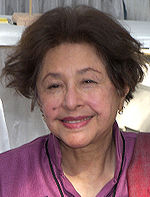 Distinguished international writer Bapsi Sidhwa lives in Houston Texas. Her novels: An American Brat, Cracking India, The Pakistani Bride, The Crow Eaters and Water have been published in several European and Asian languages. She has also compiled and edited Beloved City: Writings on Lahore [titled City of Sin and Splendor in India]. Among her many honors Sidhwa received the Bunting Fellowship at Radcliffe/Harvard, the Lila Wallace-Reader’s Digest Writer’s Award, the Sitara-i-Imtiaz, Pakistan’s highest national honor in the arts, and most recently the Italian Premio Mondello 2007 and the 2008 South Asian Excellence Award for Literature. Sidhwa, who was on the advisory committee to Prime Minister Benazir Bhutto on Women’s Development has taught at Columbia U, Mount Holyoke College, Brandeis, and Southampton University in England. Cracking India (a New York Times Notable Book of the Year and a Quality Paperback Book Club selection), was made into the film Earth by Canadian director Deepa Mehta. Her latest novel Water is based on Metha’s film of the same name. Her hugely successful play, An American Brat had a long run at Stages Repertory Theater in Houston last year.
Distinguished international writer Bapsi Sidhwa lives in Houston Texas. Her novels: An American Brat, Cracking India, The Pakistani Bride, The Crow Eaters and Water have been published in several European and Asian languages. She has also compiled and edited Beloved City: Writings on Lahore [titled City of Sin and Splendor in India]. Among her many honors Sidhwa received the Bunting Fellowship at Radcliffe/Harvard, the Lila Wallace-Reader’s Digest Writer’s Award, the Sitara-i-Imtiaz, Pakistan’s highest national honor in the arts, and most recently the Italian Premio Mondello 2007 and the 2008 South Asian Excellence Award for Literature. Sidhwa, who was on the advisory committee to Prime Minister Benazir Bhutto on Women’s Development has taught at Columbia U, Mount Holyoke College, Brandeis, and Southampton University in England. Cracking India (a New York Times Notable Book of the Year and a Quality Paperback Book Club selection), was made into the film Earth by Canadian director Deepa Mehta. Her latest novel Water is based on Metha’s film of the same name. Her hugely successful play, An American Brat had a long run at Stages Repertory Theater in Houston last year.
Author Interview
1. You are a prolific and renowned writer, having authored 5 books. How do you stay disciplined and what is your writing routine like?
Unfortunately I am not a disciplined writer and I don’t have a routine. I write when I have a chunk of time and I’m in the mood. Both are difficult to come by these days – too much in my life appears to interfere with the writing. When I’m working on a novel, and in its grip, I may write for hours at a stretch and not notice the time. I can stop writing for months when family needs require me to or or blithely give up when travel and holidays intervene; fortunately I can pick it up where I left off. Everything in my life – children, husband’s obligations, health matters – seems to have precedence over my writing. I find I can’t write in isolation – I need to have life around me – I think every author needs the sense of involvement.
2. The theme of partition strings together most of your work? Why is that subject so close to your heart? What is your own memory of the time?
The Partition of India was a defining moment in our history and it affected millions of lives for years in its aftermath – mine included. The Partition is central to the narrative in my third novel Cracking India. It makes a brief appearance in Pakistani Bride, and is barely mentioned in Crow Eaters. The roar of the mobs appeared to be a constant in my life; even as a 7 year old I knew it was an evil that threatened our lives. I couldn’t make out the words although I vaguely realized they were shouting religious slogans as they set fire to houses and harmed people. The memory of smoke and fire and fear and the sudden appearance of hoards of bedraggled refugees in my neighborhood are still vivid.
3. What has been the enjoyable part of your writing career? The awards, the fan base, and the people you have met along the way or something else?
The act of writing, of being immersed in a novel and knowing intuitively that it is unfolding as it should, this shifts me into a dimension of sustained transport, a high; it is like being in a constant state of meditation. Of course the awards are a much needed validation, and nothing validates an authors endeavors like the revelation of a fan-base. My readers and their remarks energize me. When they talk about my books I feel an intimacy, a very satisfying feeling of having shared myself with friends. I have met some wonderful writers along the way and made lasting friendships that I cherish.
4. Your path to publishing was not easy and riddled with hurdles. What advice would you give to a new writer?
You have to keep writing and trying to get published. It is a very frustrating process as I discovered. In Pakistan I self published The Crow Eaters before it was picked up by Jonathan Cape in England. If along the way you discover you are not a good writer, shift gears and go into a field which will give you more satisfaction.
5. What’s next for you? Are you working on a project that you would like to talk about?
I have a collection of essays almost readied and a collection of short stories that requires a spurt of physical and creative energy and creative.
Link to the author
Website
Mother’s Day Free Gift: A Taste of Saffron
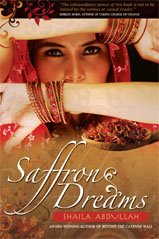 This mother’s day, pay your mother a loving tribute by giving her a gift of another mother’s ultimate love for her child. Saffron Dreams chronicles the journey of a dedicated mother and her everlasting bond with her special needs child. If you haven’t already, please get your copy of Saffron Dreams today. If you read the book and liked it, please drop me a line. I love hearing from readers.
This mother’s day, pay your mother a loving tribute by giving her a gift of another mother’s ultimate love for her child. Saffron Dreams chronicles the journey of a dedicated mother and her everlasting bond with her special needs child. If you haven’t already, please get your copy of Saffron Dreams today. If you read the book and liked it, please drop me a line. I love hearing from readers.
Read the reviews
View an excerpt
Watch a book video
Sign up for updates
Buy the Book
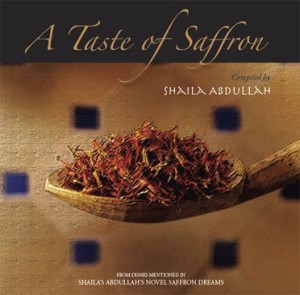 FREE GIFT:
FREE GIFT:
A Taste of Saffron is a collection of recipes of dishes mentioned in Saffron Dreams. To get the cookbook, simply send me an email with your favorite quote or scene from Saffron Dreams and I will send you the e-book absolutely free.
Author Interview: Chitra Banerjee Divakaruni
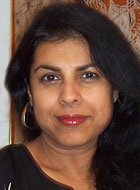 Chitra Banerjee Divakaruni is an award-winning author and poet. Her themes include women, immigration, the South Asian experience, history, myth, magic and celebrating diversity. She writes both for adults and children. Her books have been translated into 20 languages, including Dutch, Hebrew, Russian and Japanese. Two novels, The Mistress of Spices and Sister of My Heart, have been made into films. Her short stories, Arranged Marriage, won an American Book Award. She teaches Creative Writing at the University of Houston. For more information, check www.chitradivakaruni.com
Chitra Banerjee Divakaruni is an award-winning author and poet. Her themes include women, immigration, the South Asian experience, history, myth, magic and celebrating diversity. She writes both for adults and children. Her books have been translated into 20 languages, including Dutch, Hebrew, Russian and Japanese. Two novels, The Mistress of Spices and Sister of My Heart, have been made into films. Her short stories, Arranged Marriage, won an American Book Award. She teaches Creative Writing at the University of Houston. For more information, check www.chitradivakaruni.com
Author Interview
In your writing, folklore, ancient traditions, culture, cuisine, political conflict, and religious beliefs are weaved into delicate language that explores the immigrant experience. Did you always know what focus your writing was going to take or was it a natural occurrence? Also do you have a personal favorite piece of work?
The focus of my work changes a little from book to book. When I started writing, I wasn’t sure what I would write about, apart from the immigrant experience, which has always fascinated me. My work in the area of domestic violence led me to focus on strong women characters. I am getting more and more interested in depicting the spiritual search, as in The Palace of Illusions, my latest novel, and my current favorite.
How was your own immigrant experience like and how much of that do we see in your writing? When did you move to US? In your opinion, what are some of the challenges facing the immigrant Indian community in the US? In your writing, is you intent to solve or bring awareness to some of those issues?
My work is not very biographical (my life is intentionally fairly quiet). I moved to the US for graduate studies when I was quite young. A couple of challenges are: when we move, it shakes up our sense of self and family–and sometimes this leads to conflicts within the family, and often inter-generational communication break down. Also, when you are a visual minority, you can become the target of racist attacks. Yes, in my novels such as Mistress of Spices and my stories Arranged Marriage, I try to bring awareness to these issues.
You have ventured into writing for children lately. How has that experience been so far? Tell us a bit about Shadowland.
I love writing for children. On my blog, Amazing Things, I’ve written the whole story of how I came to write Shadowland. See the entry. My three children’s novels––The Conch Bearer, The Mirror of Fire and Deaming, and Shadowland––are all magical adventures set in India, with Indian characters. Here’s a synopsis of Shadowland:
In Shadowland, the hero of the Brotherhood of the Conch series, now fifteen, is settling back into his life as an apprentice in the lush Silver Valley, nestled high in the Himalayas. There he continues to learn the secret arts of the Brotherhood. But suddenly his adopted home is reduced to a barren wasteland when his beloved conch, the valley’s source of magical energy, is stolen by an unknown force. Together with his friend Nisha, Anand embarks on what may be his most dangerous mission—traveling to the cold and forbidding world of Shadowland in his attempt to restore the conch to its rightful place, and his home to its original splendor.
What is your writing routine? Tell us about a day in the life of Chitra Banerjee Divakaruni. You have recently started experimenting with social networking and using Facebook and your blog to connect with your fan base. How has the response been so far?
As I said, my life is rather quiet and simple. I take the children to school, meditate, and either go to teach at the University of Houston, or go to my writing desk to write. I like taking my dog on long walks. I cook for my family. I read as much as I can. I love fantasy and Sci fi movies. I have a Facebook author page that gives me an opportunity to meet many readers and answer their questions. I enjoy my blog, too–it’s a fun way to write about different things that interest me, and it’s very relaxing.
What’s next for you? Where do you see yourself ten years from now? What do you hope to have accomplished?
I’m working on my new novel, One Amazing Thing, about a group of people trapped in an Indian visa office in CA by an earthquake. 10 years later, I hope to be doing much of the same thing (because I love what I do)–writing, teaching, connecting with family, meditating, doing some social activism, going for long nature walks–except that I hope to do them more wisely!
Thanks Shaila for having me on your blog. Great success to you!
Orange Prize Shortlist: Burnt Shadows in the mix
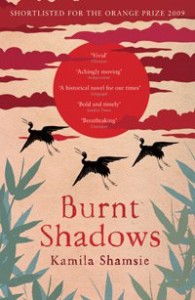 Great news shared by Muneeza Shamsie this morning. Kamila Shamsie’s novel Burnt Shadows is shortlisted in the Orange Prize for Fiction. Congratulations, Kamila!
Great news shared by Muneeza Shamsie this morning. Kamila Shamsie’s novel Burnt Shadows is shortlisted in the Orange Prize for Fiction. Congratulations, Kamila!
Bloomsbury is offering a 24-hour free download offering of Shamsie’s novel, starting April 22 at 12 noon. Visit the site to download the book.
Here is the complete shortlist:
Burnt Shadows, Kamila Shamsie
Scottsboro, by Ellen Feldman
The Wilderness, Samantha Harvey
The Invention of Everything Else, by Samantha Hunt
Molly Fox’s Birthday, Deirdre Madden
Home, by Marilynne Robinson
Read about Kamila Shamsie’s tribute to the three generations of women writers in her family.
Author Interview: Farzana Doctor
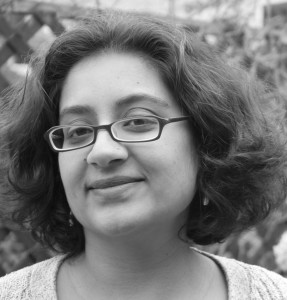 Farzana Doctor is a Toronto-based author and social worker. Her family immigrated to Canada from India via Zambia, where they lived for five years and where she was born. Her novel, Stealing Nasreen (Inanna, 2007) has received critical acclaim from the Globe and Mail, Quill and Quire, and NOW Magazine. She has had her poetry, reviews, short stories and creative non-fiction published in a variety of publications. She has also co-written a manual for therapists and was part of the video collective that produced the documentary, “Rewriting the Script”. She is completing revisions on her second novel, New Skin (working title). Find out more about her at www.farzanadoctor.com.
Farzana Doctor is a Toronto-based author and social worker. Her family immigrated to Canada from India via Zambia, where they lived for five years and where she was born. Her novel, Stealing Nasreen (Inanna, 2007) has received critical acclaim from the Globe and Mail, Quill and Quire, and NOW Magazine. She has had her poetry, reviews, short stories and creative non-fiction published in a variety of publications. She has also co-written a manual for therapists and was part of the video collective that produced the documentary, “Rewriting the Script”. She is completing revisions on her second novel, New Skin (working title). Find out more about her at www.farzanadoctor.com.
How did you find your voice as a writer? How has the journey been for your from a a social worker to a writer?
I started writing when I was a young child, and then I stopped some time in high school. In university, I studied social work and wrote a little as a hobby. However, it wasn’t until I was in my late twenties that I began to write in a disciplined way. This happened after I took a course called “Writing the Novel”, which I took as a hobby course—I never imagined I’d complete a novel. During that course I wrote the first draft of Stealing Nasreen’s first chapter and then I didn’t stop. The characters and story pulled me in until I realized I actually had written a novel! That’s when I began to call myself a writer. I’m still a social worker—I do that half-time and I write the rest of the time. The social work part of me provides me with contact with the world (my writing self is very solitary), an income, and allows me to do meaningful work in a way different from writing. Maintaining this half and half work life (and not allowing my social work life to crowd my writing life) is always a challenge.
Tell us about your experience as an immigrant in Canada? What do you think is the biggest issue facing the immigrant community in the West today?
My family came to Canada in the early 70’s, when “Skilled Immigrants” were in demand. Nearly everyone in my family found work in their fields soon after arriving and with little difficulty. At the same time, it was the era of “Paki Bashing” in Canada, a time of intense racism against all South Asians. We moved to a small, suburban town where for a long time, we were the only Indian family at our school. For me, the biggest issues were racism and the experience of identity confusion and alienation. It was only when I became a young adult that I was interested in claiming my South Asian and Muslim identities.
Today, racism takes some different forms. One issue of great importance for new immigrants is difficulty finding work. Canadian employers continue to value “Canadian experience” over job experience from other countries and so many new immigrants, including professionally trained people, are not getting their qualifications recognized. Many Toronto taxi drivers were surgeons, engineers, and professors in their home countries. This problem, and questions about how people cope with it, lingered in my mind and inspired the characters Shaffiq and Salma, who are underemployed new immigrants living in Toronto.
How was the path to publishing for you? Can you give the readers a brief overview of your journey?
It took about two and half years to find a publisher for Stealing Nasreen, which was a discouraging process. This is often the case for writers of first novels. Prior to this, I had poems, short stories, book reviews and academic articles published, which offered me a sense of validation of my skills and allowed my work to get out into the world. I’m now looking for an agent and hoping this process will be much faster! Over the past couple of years, I’ve learned a great deal about the publishing business and how to promote my work.
What compelled you to write a story about Nasreen Bastawala in Stealing Nasreen?
Writing Nasreen came out of my desire to see more South Asian lesbians in contemporary fiction. When I was first coming out as queer about 15 years ago, I sought information and reflection of my identity through books, especially fiction, and found little. Since Stealing Nasreen has come out, I’ve received many e-mails from young queer people who tell me how important it was to see themselves in the novel, and that feedback is very gratifying. I also wanted to write about the communities in which I live and derive much inspiration, and that needed to include queer South Asians.
How has your work been received so far?
I’m pleased to say that I’ve received several positive reviews from wonderful publications like Quill & Quire, The Globe and Mail, Herizons and NOW Magazine. Many readers have contacted me to let me know that they enjoyed the book and I’ve saved all these e-mails and notes in a folder that I peruse every so often when I need a boost. Readership has been varied—queer people, non-queer people, South Asians, non-South Asians, young people and older people.
What’s next for you?
I’ve recently completed my second novel, New Skin, which is about a middle-aged South Asian man who made the worst mistake of his life twenty years ago. The novel picks up in the present and is about his survival, redemption and a love affair he has with his Portuguese widow neighbour. As I mentioned before, I’m looking for a literary agent to help me sell this book. Meanwhile, I’ve started some embryonic work on a third novel.
Author Interview: Minal Hajratwala
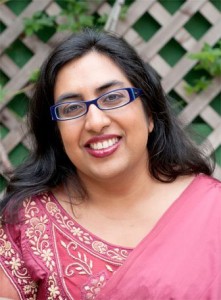 Minal Hajratwala is a writer, performer, poet, and queer activist based in San Francisco, where she was born before being whisked off to be raised in New Zealand and suburban Michigan. She is the author of Leaving India: My Family’s Journey From Five Villages to Five Continents (Houghton Mifflin Harcourt, March 2009). She spent seven years researching and writing the book, traveling the world to interview more than seventy-five members of her extended family. Her creative work has appeared in numerous journals, anthologies, and theater spaces, and has received recognition and support from the Sundance Institute, the Hedgebrook writing retreat for women, the Jon Sims Center for the Arts, and the SerpentSource Foundation. Her one-woman show, “Avatars: Gods for a New Millennium,” was commissioned by the Asian Art Museum of San Francisco in 1999. She was an editor and reporter for eight years at the San Jose Mercury News, and was a National Arts Journalism Program fellow at Columbia University’s Graduate School of Journalism in 2000-01. She is a graduate of Stanford University.
Minal Hajratwala is a writer, performer, poet, and queer activist based in San Francisco, where she was born before being whisked off to be raised in New Zealand and suburban Michigan. She is the author of Leaving India: My Family’s Journey From Five Villages to Five Continents (Houghton Mifflin Harcourt, March 2009). She spent seven years researching and writing the book, traveling the world to interview more than seventy-five members of her extended family. Her creative work has appeared in numerous journals, anthologies, and theater spaces, and has received recognition and support from the Sundance Institute, the Hedgebrook writing retreat for women, the Jon Sims Center for the Arts, and the SerpentSource Foundation. Her one-woman show, “Avatars: Gods for a New Millennium,” was commissioned by the Asian Art Museum of San Francisco in 1999. She was an editor and reporter for eight years at the San Jose Mercury News, and was a National Arts Journalism Program fellow at Columbia University’s Graduate School of Journalism in 2000-01. She is a graduate of Stanford University.
What compelled you to write a story about your own family in Leaving India?
In our families, migration stories are often told as very personal: “Your great-grandfather wanted to go to Fiji, so he went.” “Your father decided to come here to study.” But of course there must be huge social and economic and political factors at work, to make people suddenly uproot themselves and migrate. There are reasons that certain borders were open or closed to Indians at different periods in history. So I set out to understand how these larger forces of history intersected with individual lives. I wanted to understand not only why my family was in the United States, but also why I have thirty-six first cousins who live all over the world, why my grandparents and great-parents left India, and how our diaspora grew – from fewer than 400,000 people living outside India a century ago, to an estimated 19 million to 30 million people living in diaspora today. All of those questions are connected, and in the answers are connected too.
Tell us about your experience as an Indian-American in the United States?
I grew up in a very white community in suburban Michigan, and when we said we were “Indian,” people asked us, “What tribe?” Really. And if you saw me, you’d know I don’t look Native American at all, but that was the level at which they could relate to that word “Indian.” As a result, I grew up feeling sort of isolated and alienated from my ethnic identity.
Today you see Bollywood and yoga and meditation everywhere, and large South Asian communities all over the country. Obviously something had happened to cause this population surge, and in writing the book I wanted to learn about that demographic shift, not just on a historical level, but what that means in our actual lives.
How did you find your voice as a writer? How has the journey been for you from an editor, performer, activist, to an author? How do all those roles translate into your writing?
I was lucky to have a lot of support and sense of community as a writer, although it took me a while to realize that I needed it. When I was able to work at my best, it was through learning about my own habits and learning when to ask for help. Probably the most important thing that I did in my “journey” was that I created “retreats” for myself, weeks at a time where I did not answer the phone, look at email, or socialize very much. Overall I became very intimate with my own ways of distracting myself, and then I worked to eliminate those distractions. I did not read newspapers, I did not have a television, and I even had a period of two or three years where I got rid of my home internet service; I went to a cybercafé once a week to check my email, which was much more efficient.
At the same time I did not let myself feel isolated. I was able to find and be part of an amazing writing community: I had people to write with, a group to share work in progress with, a series of excellent writing coaches, a somatic bodyworker, a couple of meditation groups, a very supportive partner – all kinds of help. I did yoga and took walks. I worked very hard on the “inner critic” voices that tended to slow me down. I also got a cat, who was great company and also tried to help out by typing. (Unfortunately he’s not very good at it.)
Everything that I had learned about myself and my writing, as a poet, editor, performer, activist, lover, meditation student—that is, every aspect of my life thus far—fed into the book in someway and has been incredibly useful, and continues to help me even now in the process of putting the book out into the world.
How was the path to publishing for you? Can you give the readers a brief overview of your journey?
I had been a journalist for eight years, then I wrote a book proposal in a seminar I took while I was a fellow at the Columbia University Graduate School of Journalism in early 2001. I submitted the proposal to a few agents, then signed with my agent, who sold the book to Houghton Mifflin Harcourt.
What do you think is the biggest issue facing the American-Indian community in the United States today?
I think it is very important for Indo-Americans to realize that there is tremendous diversity within our community and to act, vote, work, and build social relationships in solidarity with other people of color of all social classes in the United States.
In the United States there’s this common idea that Indians are smart, good at math, wealthy, engineers or doctors, professionally successful and hard-working, etc.—that we are somehow “better” than other people who have come to the United States But of course, that’s based on a very particular slice of Indians who were allowed to immigrate to the United States right after 1965 precisely because they fit certain educational and professional qualifications. That was my parents’ generation, the so-called “brain drain” group. If you look at a bigger selection of Indians, either over time or globally, it’s obvious that there is nothing genetic about it, and we’re everything: smart and foolish, rich and poor, hard-working and slackers, practicing every profession under the sun and then some. How much more wonderful and liberating it is to have the full range of human experience available to us. A lot of Indo-Americans buy into the “model minority” stereotype, because who wouldn’t want to be smarter and savvier than everyone else? But I feel just as allied with the contract laborer in Kuwait or the cousin who can’t get a visa to leave India, as well as the Mexican American farmworker, as with the Silicon Valley internet millionaire.
Would you continue to write nonfiction or do you have other plans in mind?
I have several project ideas in various genres, so we’ll see which one comes to fruition first.
Visit the author’s website
Author’s Facebook page
Buy Leaving India: My Family’s Journey From Five Villages to Five Continents
Author Interview: Sefi Atta
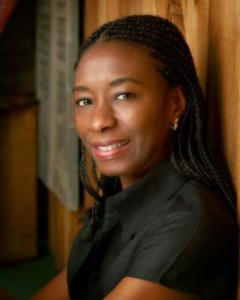 Sefi Atta was born in Lagos, Nigeria. She trained as an accountant in London and began to write while working in New York. Her works have won prizes from Zoetrope, Red Hen Press, the BBC and PEN International. In 2006 she was short listed for the Caine Prize for African Literature and her debut novel, Everything Good Will Come was awarded the Wole Soyinka Prize for Literature in Africa. It is published and forthcoming in twelve countries to date. Her second novel Swallow and short story collection Lawless were published in Nigeria in 2008. Lawless is forthcoming in the U.K. as News From Home.
Sefi Atta was born in Lagos, Nigeria. She trained as an accountant in London and began to write while working in New York. Her works have won prizes from Zoetrope, Red Hen Press, the BBC and PEN International. In 2006 she was short listed for the Caine Prize for African Literature and her debut novel, Everything Good Will Come was awarded the Wole Soyinka Prize for Literature in Africa. It is published and forthcoming in twelve countries to date. Her second novel Swallow and short story collection Lawless were published in Nigeria in 2008. Lawless is forthcoming in the U.K. as News From Home.
1. What do you think is the future of Nigerian literature in English in the United States?
Nigerian literature in the United States has for the most part substantiated the impressions Americans already have about Africa. We have had stories about political instability, war, poverty and disease. They are necessary stories, but they are not the only stories of Africa. I think we will see more and more literature that challenges the restricted American view of Africa from now on—hopefully, without aiming to.
2. Tell us about your experience as a Nigerian-American in the United States? How did you find your voice as a writer? What converted you from a CPA to an author?
My experience has shown me that the literary marketplace in the United States is not yet mature enough to accommodate African writers in general without trying to limit our expression, and this has an impact on the stories we choose to tell and how we tell them.
There is a lot of patronizing going on, with people expecting you to fulfill their fantasies of Africa. Sometimes they even expect you to live up to their expectations of what an African writer should be like and they can turn on you in these so-called liberal literary circles. They might think you’re uppity if you’re not willing to be patronized, so I don’t blame African writers who play the game. This is a tough business to be in and even when African writers make staggering progress, we only get so far. In the United States, the most popular stories set in Africa are The No.1 Ladies Detective series by Alexander McCall-Smith.
I was lucky to find an independent publisher who never interfered with my voice. After my first novel, Everything Good, I experimented with voices. I wrote my second novel Swallow in the voices of a Nigerian woman who speaks English as a second language and her mother, who does not speak English at all. My third book Lawless is a collection of short stories. I wrote them in so many different voices, including male and children’s voices.
Experimenting with voices restricted me sometimes and other times it was freeing, but it was important for me to challenge myself that way. Now, I write in the voice I am most comfortable with, that of an educated Nigerian woman.
I moved to the United States in 1994 with my husband, who trained as a doctor in Nigeria. I met him in Nigeria and we lived in England for a while. I was educated in England and trained as a chartered accountant there. I was not interested in numbers, but it was the only way I could get a work permit. I started writing in the United States while I was working as a CPA. In 1997, we moved from New Jersey to Mississippi and I was no longer allowed to work under the terms of my husband’s work permit. We had a three year old daughter and everyone kept telling me to use the opportunity to have more children, but I wrote a novel and went back to school to get myself an MFA.
3. How was the path to publishing for you? Can you give the readers a brief overview of your journey?
It was hard. I was lucky to find an agent the day before we moved from New Jersey to Mississippi, July 1, 1997. I had a reading at a Barnes and Noble bookstore in New York and she just walked up to me. I started writing Everything Good the next day. We had no furniture, but I plugged in my computer and wrote the first line, which I subsequently changed. Seven years later, the novel was published and it had been through several title changes. My editor came up with the final title. I just could not name that novel.
4. How do you think readers would relate to the character of Enitan Taiwo in Everything Good will Come? Give us a glimpse of the enduring friendship of Enitan and Sheri? What message are you wanting to convey through these characters’ lives?
When the book first came out in Nigeria, readers related to both characters so much that a few disapproved of Enitan as if she were a real person. They were my harshest and loudest critics, especially the goons who got on the Internet to abuse her, the book and me. They put me off reading reviews, but it is just as well. For me, it is important that Nigerian readers especially relate to my characters, but I don’t find it useful to monitor their censure or praise, especially while I am writing.
Sheri and Enitan are just two Nigerian women who are trying to find ways to navigate the society they are in. Enitan is clumsily confrontational and in some ways more vulnerable. Sheri is more shrewd and manipulative. When one is weak, the other is strong. I’m not sure what message I wanted to convey, but they are based on Nigerian women I know. That’s basically what I do: I take real life experiences and put them together in a way that resembles fiction.
5. What is next for you? Are there more books in you?
I have been writing for twelve years now. I have published three books and I have three more in the pipeline. I have drafted them to a point that I can confidently say yes, there is a story in here, but I have a lot of revision to do. The Age of Widows is a thoroughly modern Nigerian story. The Bead Collector I have never spoken about. It is controversial and has a strong political content. The Far Removed is my American book and the one that needs the most revision, apparently. But revision is the stage of writing I love most. Writing the first draft is dreadful and I have to isolate myself to get through it. I ignored everything else to get all three drafts out of the way. It took me years and I won’t recommend that to any writer, but I am embarrassingly pragmatic. I knew I had to write the books and figured I should get the unpleasant work out of the way before my daughter starts high school next year, when I have to be more vigilant and patient. I also want to spend more time with my husband and enjoy his company—now that our daughter has less time for us and we’re still able to rock. You know, we women writers have to be creative with our families as well.
I tell my family I will stop writing after I have published these books and they laugh because they don’t believe me. I mean it though. I am very thankful to have had the opportunity to write for so long, but I want to channel all that energy I have in another direction. I was not interested in numbers and I became an accountant. I had no idea if I would be any good with words and now I’m a published writer. So who knows where my next phase in life will lead me? Perhaps I will end up doing something that allows me to combine my business and writing experiences. We’ll see.
Author’s Facebook page
Visit the author’s website
Buy the author’s books
- « Previous Page
- 1
- 2
- 3
- 4
- 5
- 6
- …
- 9
- Next Page »




